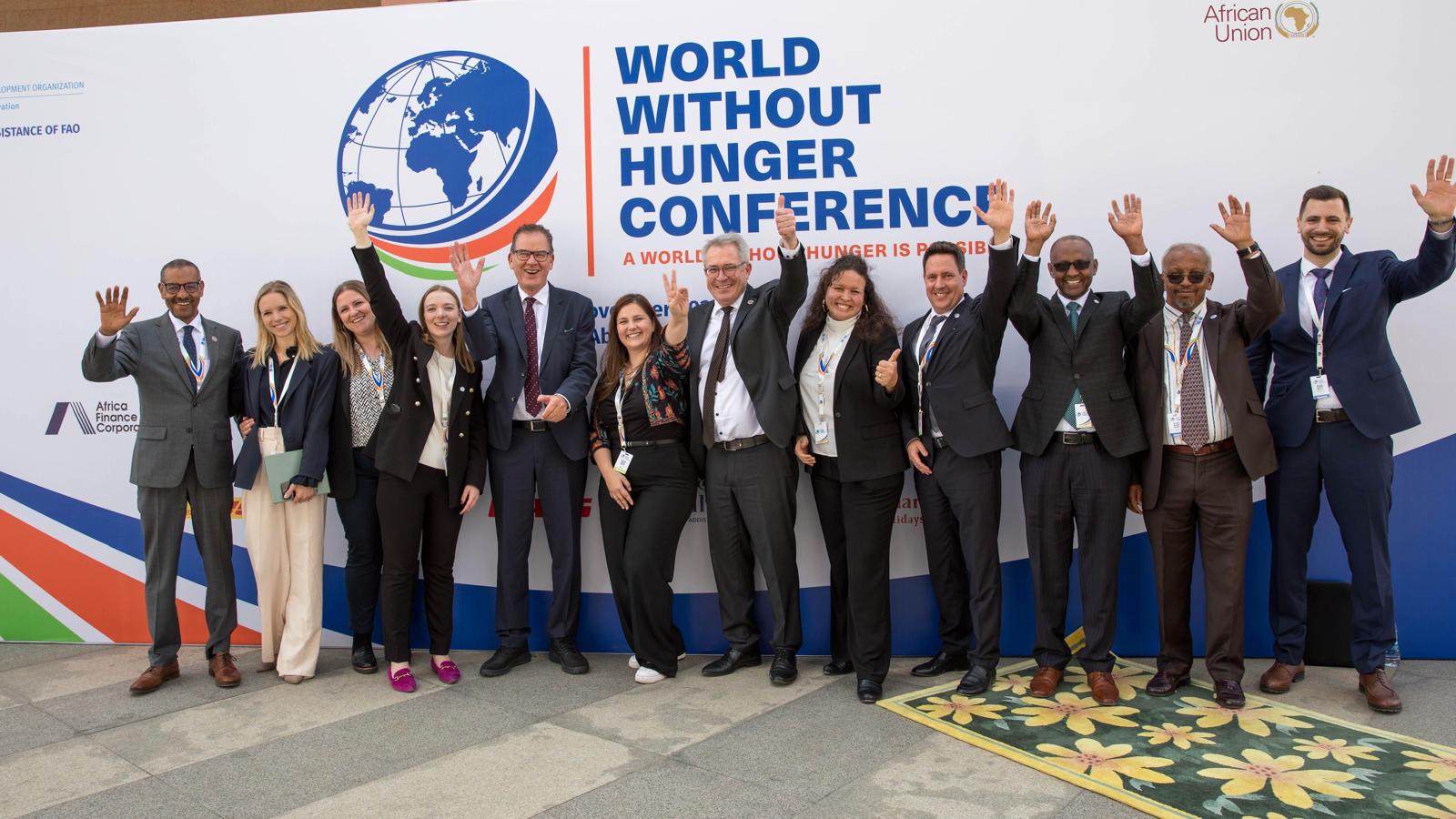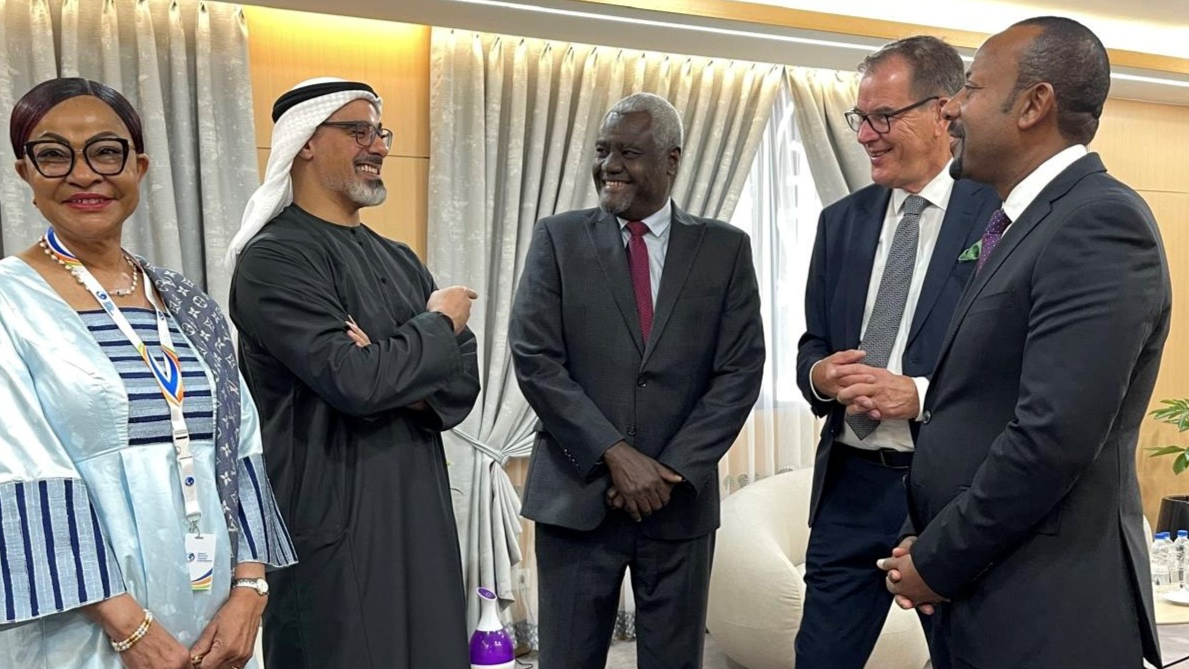

UNIDO, African Union, and Ethiopian Government Unite in Global Call to Action for a ‘World Without Hunger’
08 November 2024
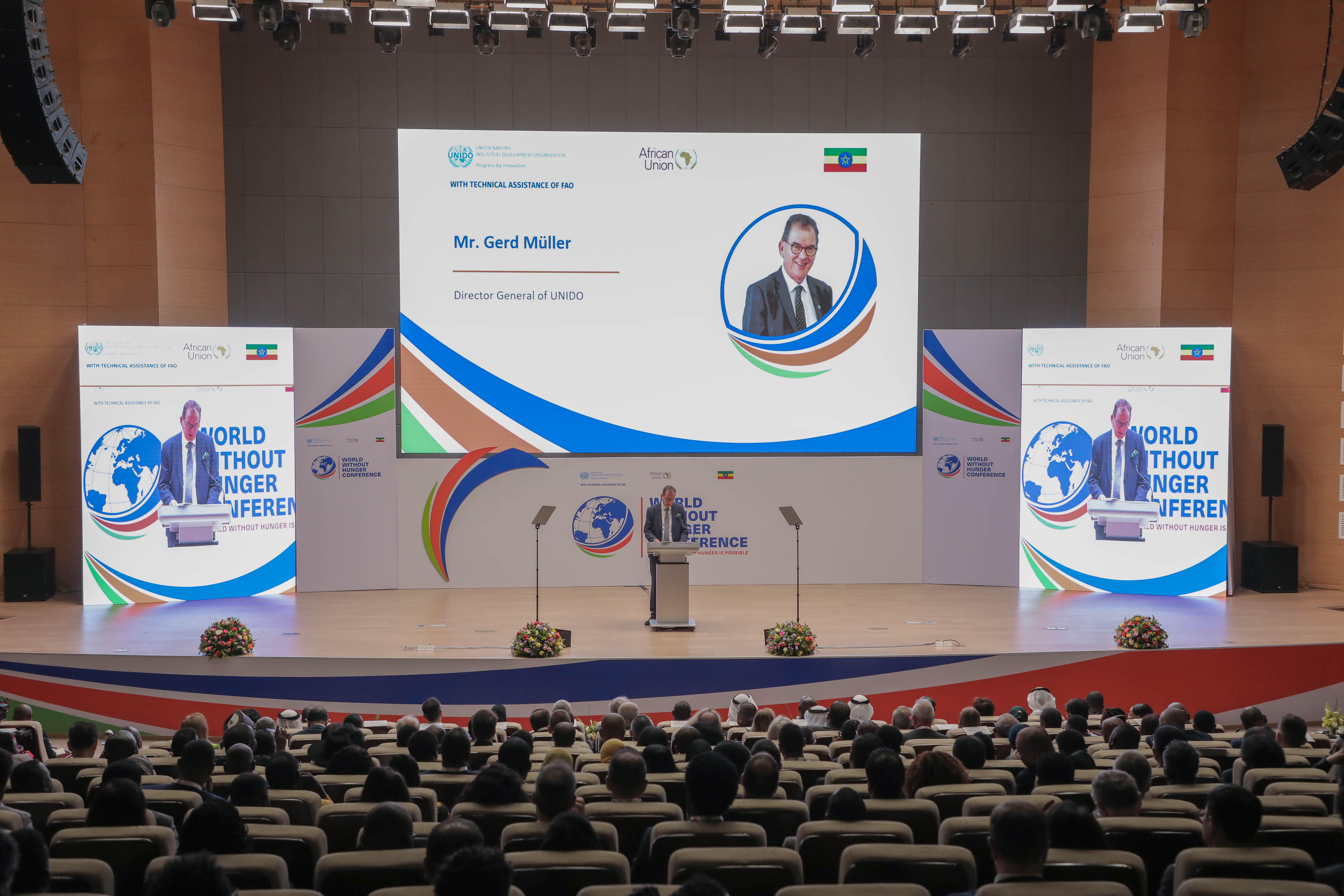
Addis Ababa, November 7, 2024 – The World Without Hunger Conference was a great success. The landmark event was organized by UNIDO together with the Government of Ethiopia and the African Union Commission, with technical support from the Food and Agriculture Organization (FAO). The conference marked the beginning of a new and intensified stage of global action to end hunger once and for all. Innovative solutions were presented, new partnerships were forged, and concrete investments were mobilized.
The conference concluded with the Addis Ababa Call to Action, a concrete roadmap for the international development community and the public and private sectors to join forces to scale up investments in key areas to end hunger. Moreover, a new joint UNIDO-FAO study was launched, outlining actionable solutions, key action areas and concrete investment opportunities in support of ending hunger globally.

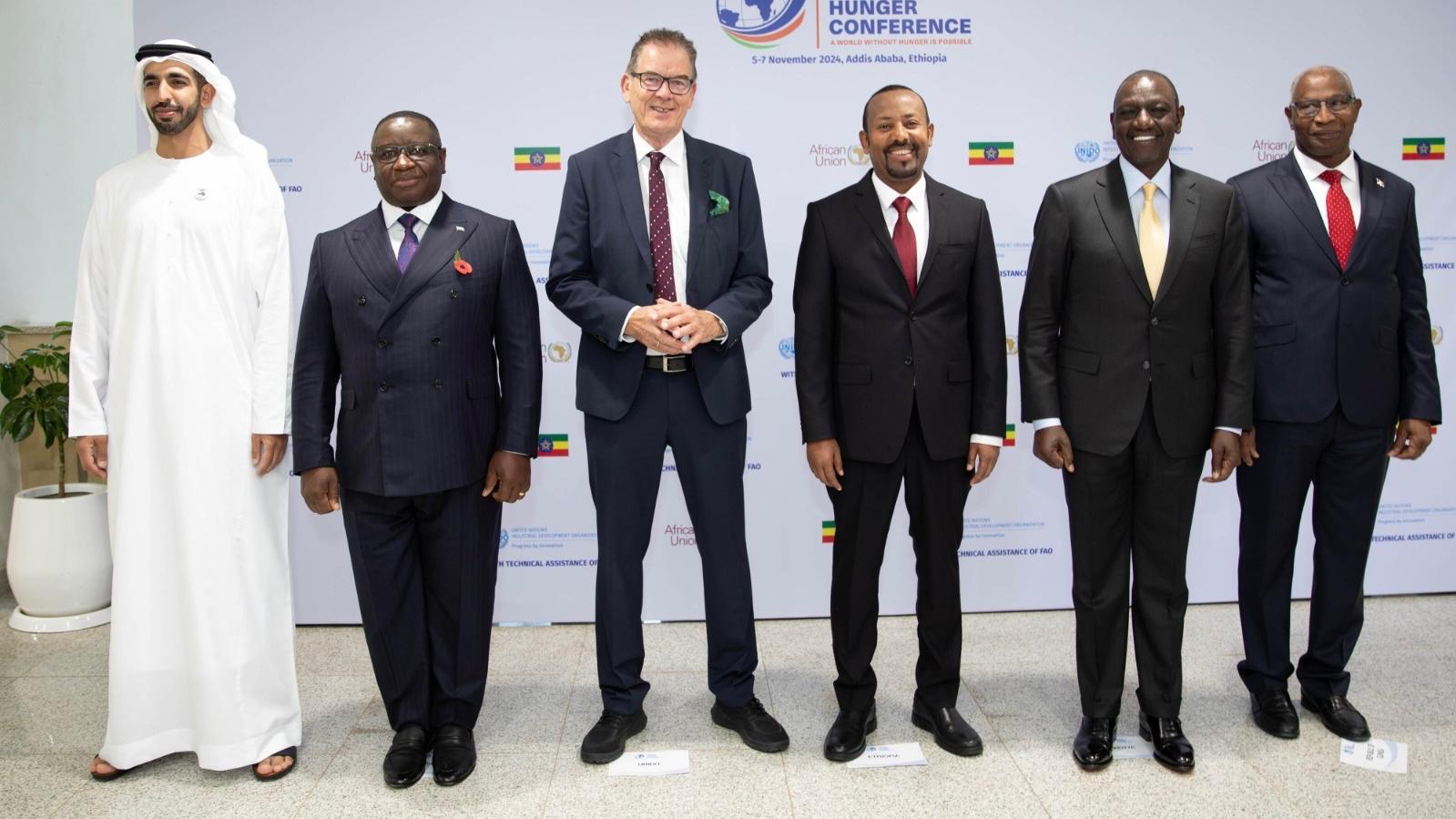
UNIDO Director General Gerd Müller : “A world without hunger is possible! We have the technology and the knowledge to defeat hunger. But we need the political will and the necessary investments. Our new UNIDO-FAO study presents a lasting solution to the hunger crisis, especially in the face of population growth. It is crucial that we make long-term strategic investments without delay. With an additional annual investment of $50 billion over the next ten years in infrastructure, innovation and technology, and agribusiness, we can build a world where hunger is a thing of the past. But action must be taken now! With every year that passes, the effort required and associated costs increase exponentially.” The Director General continued: “UNIDO stands ready as partner in achieving this important goal. I am very pleased to announce the opening of the China–Africa–UNIDO Centre of Excellence here in Addis Ababa, which will drive sustainable industrialization, agricultural modernization, and skills development across Africa, using the latest technologies, AI, and renewable energy.”
Prime Minister Abiy Ahmed of Ethiopia : "In a crisis-prone world with a growing population, ensuring food security demands innovative solutions. We must adopt sustainable practices, advance modern farming, expand access to essential agricultural inputs, and address climate change to enhance productivity. However, ending world hunger is about more than just increasing food production; it requires us to tackle systemic issues such as poverty, inequality, and climate resilience in a holistic manner." The Prime Minister continued:” In Ethiopia, our focus on agricultural transformation and productivity over the past six years has allowed us to double our cultivated land, with promising outcomes driven by our emphasis on high-value industrial crops. By uniting global leaders, experts, and advocates to discuss innovative solutions and partnerships, I am hopeful that our collective efforts to eradicate hunger and ensure food security for all will bear fruit.”
Chairperson Moussa Faki of the African Union Commission: “Africa is not on track to end hunger. Over 280 million Africans, representing over 20 percent of the continent’s population, are food insecure, and another 850 million people cannot afford a healthy diet. This is paradoxical, as 60 percent of the world’s unused arable land is here in Africa. We also have the youngest population and significant water reserves. Given all that, the situation is unacceptable. In fact, it is a crying shame, that with all these resources, Africa still cannot feed itself. This has to change! On our part, the African Union has led the development of a new 10-year Action Plan which aims to build resilient and sustainable agri-food systems for a healthy and prosperous Africa. We have learned from 20 years of experience that we must do more to improve the quality and pace of implementation on the ground. It is critical that development partners and other key stakeholders align their technical and financial resources to our AU Action Plan for agri-food systems.”
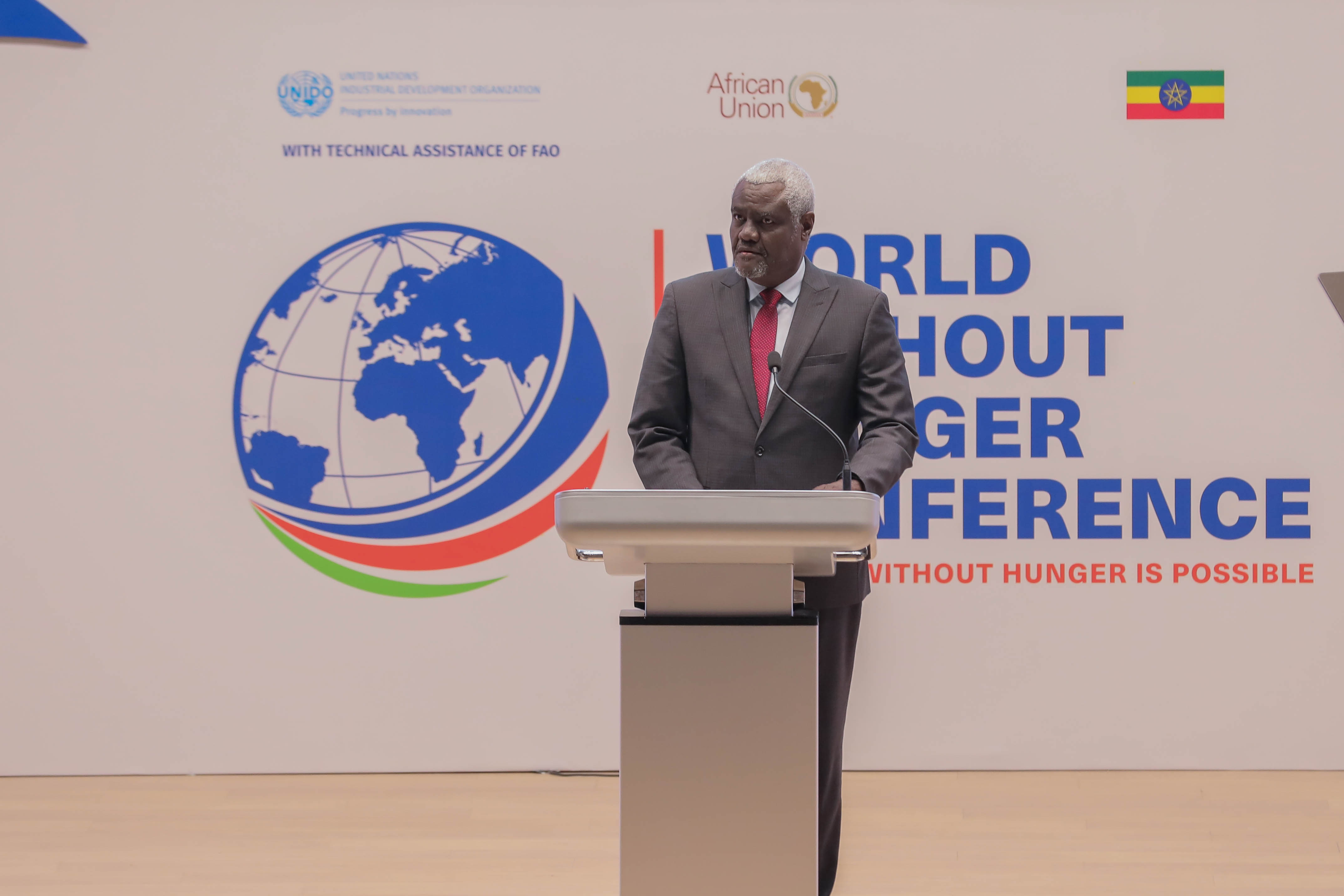
733 million people – 1 in 11 of the global population – are facing hunger today. There is still a long way to go to achieve the goal of zero hunger. It is estimated that 582 million people will still be affected by hunger in 2030, unless further investments are made. The new study by UNIDO and FAO titled “Ending hunger is possible: An income-generating approach through value addition,” finds that the cost of ending hunger by 2030 has increased from $330 billion to $540 billion due to a lack of sufficient long-term structural investments. These costs are additional to existing investments by governments, the private sector, and the international development community. The study presents concrete action areas for ending hunger by focusing on raising the incomes of the poorest in the world and increasing local value addition in the agri-food sector.
FAO Chief Economist Maximo Torero: “The cost of inaction rises daily, affecting not just finances but lives. We must act urgently and coordinate and prioritize investments to accelerate the transformation of agri-food systems.”
THE NEED TO ACT NOW
Significant progress has been made in the global fight against hunger over the past decades. The proportion of the global population suffering from hunger has decreased by almost 50% since 1990, when more than one billion people were affected. Yet, since the outbreak of the pandemic in 2020 these figures have risen dramatically. Global shocks and increased conflicts worldwide, climate change induced weather extremes and disasters, and supply chain disruptions have worsened the hunger crisis. These factors have driven food prices to unprecedented levels. Sudan for example is on the brink of the worst famine in four decades, while climate change has led to severe droughts in the Horn of Africa and extreme weather events affecting crop yields in South Asia.
The World Without Hunger Conference and the Addis Ababa Call to Action come at a crucial time, mobilizing investments and offering a solution-oriented, long-term strategy that addresses the underlying structural challenges that make countries vulnerable to food insecurity.
During the conference, notable pledges were made to raise the incomes of the poorest and enhance food security. Sheikh Ebrahim bin Khalifa Al Khalifa, Chairman of the Board of Trustees of the Accounting and Auditing Organization for Islamic Financial Institutions (AAOIFI) pledged to mobilize 20% of Islamic Financial Institutions’ loans towards SME development. The Union of Arab Banks reiterated their previously made pledge of $ 1 trillion towards the SDGs, a significant milestone for development finance.

The three-day event brought together over 1,500 high-level stakeholders, including six Heads of State and Government, over twenty Ministers, UN agencies, private sector investors, financial institutions, development partners, civil society, non-governmental organizations, and academia.
Each day of the conference focused on a different aspect of the global food security challenge, drawing attention to actionable insights and the critical partnerships needed to drive change. Day one focused on understanding the root causes of hunger and addressing food insecurity. Day two highlighted investment opportunities and strategic partnerships with the private sector, and finally day three mobilized global action and concrete commitments from high-level stakeholders. An informative exhibition provided a dynamic platform for organizations, innovators and thought leaders to showcase their initiatives, products and research in the fight against global hunger. Each booth provided an engaging experience and fostered tangible connections between stakeholders that will help advance the fight against global hunger. ‘Solutions Talks’ were another highlight of the conference, providing a collaborative forum for leaders from different sectors to discuss scalable best practices and strategies to address key challenges such as supply chain resilience, climate-smart agriculture, and the role of technology in improving food distribution and access.
The World Without Hunger Conference was made possible through the generous support of our sponsors: Africa Finance Corporation, African Development Bank, OCP Africa, Xicheng District, Beijing Huatian Catering Holding Group, Blue Nile Mashreq Bank, DHL, Fairtrade Africa, CLAAS, Hilton Addis Ababa, Ethiopian Holidays, and Ethio Telecom.
